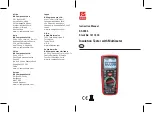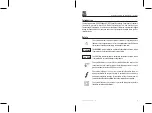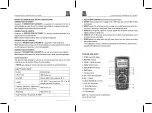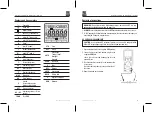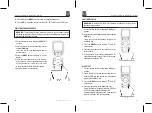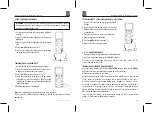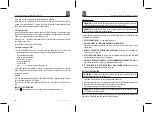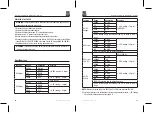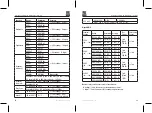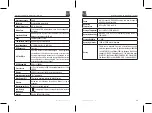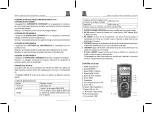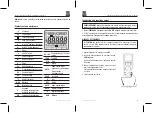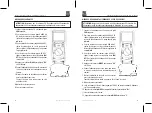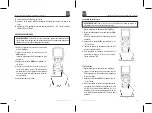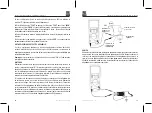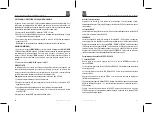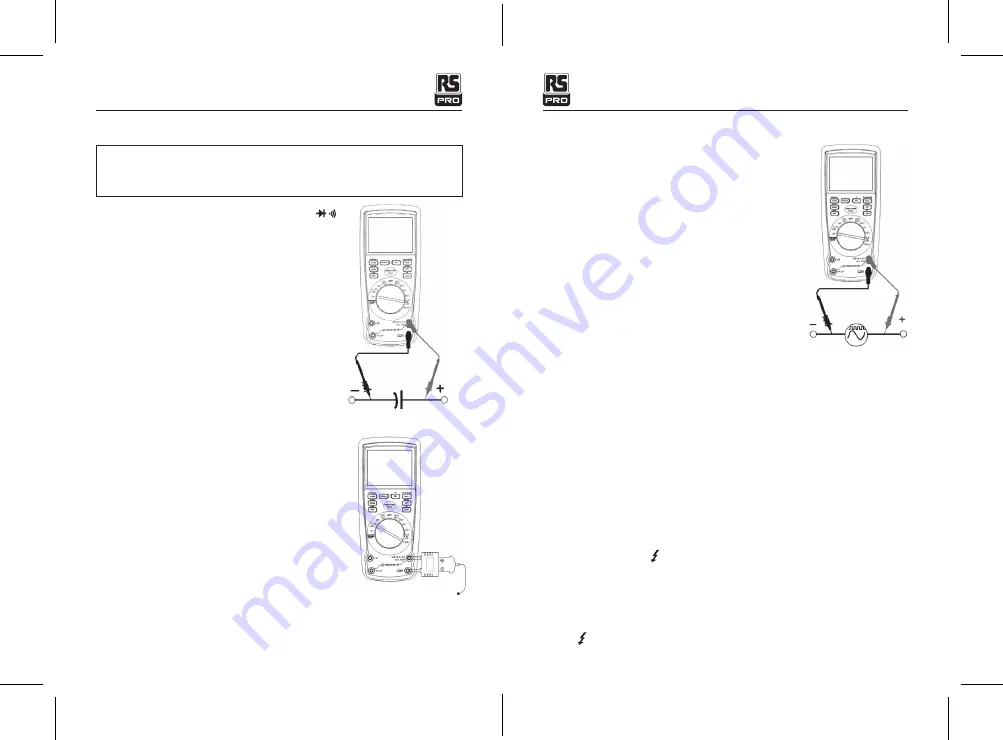
12
13
CAPACITANCE MEASUREMENTS
WARNING:
To avoid electric shock, disconnect power to the unit under test and
discharge all capacitors before taking any capacitance measurements. Remove the
batteries and unplug the line cords.
1. Set the rotary function switch to the green
Ω CAP
position.
2. Insert the black test lead banana plug into the negative
COM
jack.
3. Insert the red test lead banana plug into the positive
V
jack.
4. Press the
MODE
button to indicate “
F
”
5. Touch the test leads to the capacitor to be tested. Read
the capacitance value on the display.
TEMPERATURE MEASUREMENTS
1. Set the function switch to the green temp position.
2. Insert the temperature probe into the input jacks,
making sure to observe the correct polarity.
3. Press the
MODE
button to indicate “ºF” or “ºC”
4. Touch the temperature probe head to the part whose
temperature you wish to measure. Keep the probe
touching the part under test until the reading stabilizes
(about 30 seconds).
5. Read the temperature on the display.
Note:
The temperature probe is fitted with a type K mini connector.
A mini connector to banana connector adaptor is supplied for connection to the input
banana jacks.
FREQUENCY (DUTY CYCLE) MEASUREMENTS (ELECTRONIC)
1. Set the rotary function switch to the green
Hz/%
position.
2. Insert the black lead banana plug into the negative
COM
jack and the red test lead banana plug into the
positive
Hz
jack.
3. Touch the test probe tips to the circuit under test.
4. Read the frequency on the display.
5. Press the
MODE
button to indicate “%”.
6. Read the % duty cycle on the display.
% 4 – 20 mA MEASUREMENTS
1. Set up and connect as described for DC mA measurements.
2. Set the rotary function switch to the
4-20mA%
position.
3. The meter will display loop current as a % with 0 mA=-25%, 4 mA=0%, 20
mA=100% and 24 mA=125%.
INSULATION RESISTANCE MEASUREMENTS
a)
Set the rotary function switch to the
INSULATION
position, and press the
RANGE
button to chose one of the voltage which display on the top left corner.
b)
Connect two testing lines to the tested.
c)
Push down and hold the “
TEST
” button/or press the “
LOCK
” key first and then the
“TEST” button. If the tested is electriferous and its voltage ( AC/DC) is over 30 V, it
will refuse work and no high-voltage testing occurs, simultaneity, it shows “>30 V”
on the LCD, the symbol “ ” flashes and the buzzer warns frequently. If the tested is
diselectriferous or its voltage is lower than 30 V, it will enter into the formal testing
process and brings the high-voltage on the primary display. The insulation resistance in
MΩ is indicated inphase with analogue bar.
In the top right corner display, the tested insulation voltage in V (DC)
is indicated. The
symbol “ ” flashes and the buzzer warns frequently.
Insulation Tester with Multimeter / English
Insulation Tester with Multimeter / English
25/01/2018 Version No. 001
25/01/2018 Version No. 001

